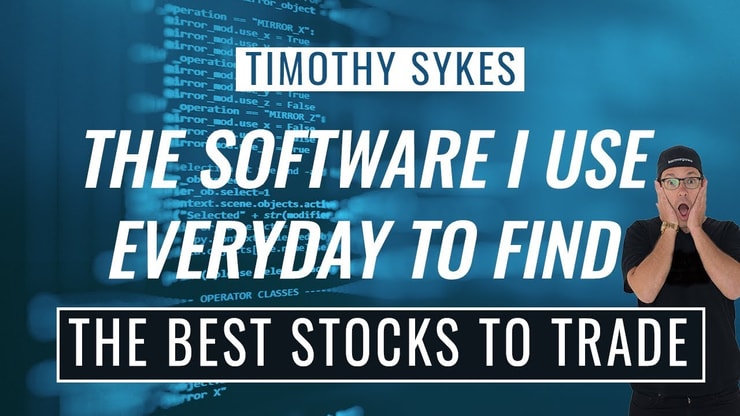The best stocks to buy right now in Canada have a strong potential for returns, are backed by a solid business model, and align with current market conditions. These stocks often have a strong dividend yield, earnings growth, and a favorable analyst rating.
Read this article because it’s your comprehensive guide to the best Canadian stocks to buy right now, complete with factors to consider and top picks for 2023.
I’ll get into the following …
- What Is the Best Stock to Buy Right Now in Canada?
- What Factors Should You Consider When Choosing a Stock in Canada?
- What Benefits and Potential Returns Can You Expect from Canadian Stocks?
- What Are the Risks of Investing in Canadian Stocks?
- What Are the Best Sectors of Canadian Stocks?
- How Have Canadian Stocks Performed in Recent Years?
Table of Contents
- 1 What Is the Best Stock to Buy Right Now in Canada?
- 2 Top Stocks to Buy Right Now in Canada 2023
- 3 Factors To Consider When Choosing a Stock in Canada
- 4 Why Buy Stocks in Canada?
- 5 What You Need to Know Before Investing
- 6 How To Buy the Best Stocks
- 7 Key Takeaways
- 8 Canadian Stock FAQs
- 8.1 What Makes a Stock the “Best” To Buy?
- 8.2 How Does the Canadian Stock Market Differ from Other Major Markets?
- 8.3 Are There Any Up-and-Coming Sectors in Canada To Keep an Eye On?
- 8.4 What Types of Investments Should I Consider?
- 8.5 How Do Financial Entities Impact Stock Selection?
- 8.6 What Market Conditions Should I Monitor?
- 8.7 How Reliable Is the Information and Data Available?
- 8.8 What Miscellaneous Factors Should I Consider?
- 8.9 What Tools Can Help Me Make a Decision?
- 8.10 What Factors Impact Retirement Stocks?
- 8.11 What Role Do Articles and Date-Specific Information Play?
- 8.12 How Do Credit Cards Affect Bank Stocks?
- 8.13 Is the Stock Accessible in Quebec?
- 8.14 How Do World Events Influence the Stock Market?
- 8.15 Should I Follow Sales and Revenue Trends?
- 8.16 What Role Does Production Play in Stock Valuation?
- 8.17 How Do Brands Affect Stock Value?
- 8.18 How Much Money Should I Initially Invest?
- 8.19 What Do Customer Relations Indicate?
- 8.20 Are There Plenty of Choices in Dividend Stocks?
- 8.21 What Costs Should I Be Aware Of?
- 8.22 What Are the Most Promising Sectors?
What Is the Best Stock to Buy Right Now in Canada?

The best stock to buy in Canada is subjective and depends on various factors like market cap, dividend yield, and earnings growth. Companies like Shopify, Telus, and Bank of Montreal often make the list. But remember, the stock market is a dynamic environment.
Overview of the Current Market Condition in Canada
The Canadian stock market, primarily the Toronto Stock Exchange (TSX), is influenced by various sectors like energy, technology, and banking. The economy, inflation rates, and even global events like the COVID pandemic can impact stock prices. So, always keep an eye on the broader picture.
Top Stocks to Buy Right Now in Canada 2023
My top Canadian stock picks are:
- NYSE: BB — BlackBerry Limited
- NYSE: SHOP — Shopify Inc.
- NASDAQ: TLRY — Tilray, Inc.
- NASDAQ: DRUG — Bright Minds Biosciences Inc
- AMEX: CYBN — Cybin Inc
If you’re looking for top stocks in 2023, consider sectors that have shown resilience and growth. Companies like Enbridge in the energy sector or Shopify in technology are good examples. But don’t just take my word for it; I’ve been trading and teaching long enough to know that doing your own research is crucial.
Before you send in your orders, take note: I have NO plans to trade these stocks unless they fit my preferred setups. This is only a watchlist.
The best traders watch more than they trade. That’s what I’m trying to model here. Pay attention to the work that goes in, not the picks that come out.
Sign up for my NO-COST weekly watchlist to get my latest picks!
BlackBerry Limited (NYSE: BB)
My first Canadian stock pick is BlackBerry Limited (NYSE: BB).
BlackBerry, once a leader in mobile technology, has pivoted towards cybersecurity and software services. While its share price has seen ups and downs, it remains a topic of interest among investors. The company’s operations have expanded into various segments, including IoT and enterprise software. If you’re considering investing in BlackBerry, pay attention to its revenue growth and recent acquisitions, as these could be indicators of future performance.
More Breaking News
- Needham Upgrades Ichor Holdings to Buy Amid Positive Forecasts
- Entegris Faces CFO Transition Amid Price Target Boosts from Analysts
- QuantumScape Takes a Big Leap with New Battery Line
- Valterra Platinum’s Q4 Forecast Drives Anticipation Amidst Earnings Surge
Shopify Inc. (NYSE: SHOP)
My second Canadian stock pick is Shopify Inc. (NYSE: SHOP).
Shopify is a Canadian e-commerce giant that has seen tremendous growth. With a strong business model that caters to both small and large retailers, it has a competitive advantage in the market. The company’s performance is often highlighted in analysts’ reports, and its valuation is a subject of much discussion. If you’re looking for a tech stock with strong fundamentals and growth prospects, Shopify should be on your radar.
Tilray, Inc. (NASDAQ: TLRY)
My third Canadian stock pick is Tilray, Inc. (NASDAQ: TLRY).
Tilray is a pharmaceutical and cannabis company that has garnered a lot of attention. Its share price can be volatile, so it’s essential to consider its EBITDA, cash flow, and debt levels before investing. The company has made strategic acquisitions to expand its product line and increase its market share. Keep an eye on its performance in both the North American and international markets.
Bright Minds Biosciences Inc (NASDAQ: DRUG)
My fourth Canadian stock pick is Bright Minds Biosciences Inc (NASDAQ: DRUG).
Bright Minds is a biotech company focusing on the development of therapies for neuropsychiatric disorders. While it’s a smaller player, its unique approach to drug development makes it an interesting investment opportunity. Before diving in, consider the company’s revenue growth, its research and development strategy, and the competitive landscape in the biotech industry.
Cybin Inc (AMEX: CYBN)
My fifth Canadian stock pick is Cybin Inc (AMEX: CYBN).
Cybin is another biotech company, but it focuses on psychedelic therapies for mental health conditions. The company is in the early stages of clinical trials, so it’s considered a higher-risk investment. Look at the company’s financials, including its cash flow and debt levels, to gauge its long-term viability. Keep an eye on news about its clinical trials, as positive results could significantly impact its share price.
Factors To Consider When Choosing a Stock in Canada

When choosing a stock, look at the dividend yield, earnings growth, and payout ratio. Also, consider the company’s position in its sector and its market capitalization. Analyst ratings and price targets can provide additional guidance. I always tell my students to look at the fundamentals and the bigger economic picture.
While you’re diving into dividend yields and market caps, don’t overlook the tools that can make your life easier. Brokers in Canada offer various platforms that can help you make informed decisions. These platforms often come with a range of securities data that can be invaluable for your research. They can provide real-time market cap information, picks from seasoned traders, and even sentiment analysis based on social media response. So, when you’re setting up your trading account, make sure you have access to these tools. For a deeper dive into trading platforms, check out this guide on the best Canada trading platform in 2023.
Why Buy Stocks in Canada?
Canada’s stock market offers a plethora of opportunities for investors. With a stable economy and a diverse range of sectors like energy, technology, and banking, it’s a fertile ground for investments. Companies like Fortis and QSR have shown consistent dividend growth, making them attractive options for those looking for steady income. The country’s robust financial institutions offer various wealth management tools, and analysts frequently provide valuable reports on stock performance and valuation. Whether you’re a resident of North America or South America, the Canadian market offers a unique blend of stability and growth prospects.
Benefits and Potential Returns
Canadian stocks offer a range of benefits, including strong dividend yields and potential for high returns. The country’s stable economy and robust sectors make it an attractive option for investors.
Market Stability and Growth Prospects
Canada has a stable economy and strong ties with countries like the U.S. and China. This offers a level of market stability and multiple avenues for growth, making it a good place for long-term investments.
What You Need to Know Before Investing

Before you dive into the Canadian stock market, there are several things you need to consider. Interest rates, EBITDA, and cash flow are just a few financial metrics that can give you a sense of a company’s health. Also, don’t overlook the debt-to-equity ratio; it’s a crucial indicator of how a business is managing its funds. Make sure to read analysts’ reports and keep an eye on market news. Remember, investing is not a one-size-fits-all strategy; it requires a lot of research and a good understanding of market dynamics.
You’ve got your eyes on the metrics, but don’t forget to read the disclaimers. These legal notes can offer insights into the risks associated with a particular stock or sector. They often contain valuable information about a company’s financial health, including revenue growth, sales data, and even details about ongoing clinical trials if it’s a biotech company. So, before you jump in, make sure you’ve read and understood the disclaimers. For more on what to look out for, here’s a comprehensive list of blue-chip stocks in Canada with tips to invest.
Risks of Investing in Canadian Stocks
Every investment comes with risks. Market volatility, economic recessions, and global crises like wars can impact your portfolio. Diversifying can mitigate these risks.
When you’re evaluating the risks, remember that not all sectors are created equal. For instance, agriculture stocks might be influenced by different factors than tech stocks. Weather conditions, global trade policies, and even consumer preferences can have a significant impact on a sector’s performance. It’s crucial to diversify your picks across various sectors to mitigate these risks. If you’re interested in diversifying into agriculture, here are some top agriculture stocks in Canada to watch this year.
Best Sectors of Canadian Stocks
Energy, technology, and banking are some of the best sectors. Companies like Enbridge in energy or Bank of Montreal in banking have shown consistent growth and offer good dividends.
How Have Canadian Stocks Performed in Recent Years?
In recent years, Canadian stocks have shown resilience, especially in sectors like technology and energy. However, like any market, there have been ups and downs, so always do your due diligence.
How To Buy the Best Stocks
To buy stocks, you’ll need a trading platform. Brokers like Questrade and Qtrade offer platforms where you can trade stocks, ETFs, and options. Always consider fees and the range of services offered before choosing a platform.
Key Takeaways

The best stock to buy in Canada depends on various factors like dividend yield, market cap, and the current economic landscape. Always do your research and consider diversifying your portfolio to mitigate risks.
Trading isn’t rocket science. It’s a skill you build and work on like any other. Trading has changed my life, and I think this way of life should be open to more people…
I’ve built my Trading Challenge to pass on the things I had to learn for myself. It’s the kind of community that I wish I had when I was starting out.
We don’t accept everyone. If you’re up for the challenge — I want to hear from you.
Apply to the Trading Challenge here.
Trading is a battlefield. The more knowledge you have, the better prepared you’ll be.
What Canadian stocks are on your watchlist? Let me know in the comments — I love hearing from my readers!
Canadian Stock FAQs
What Makes a Stock the “Best” To Buy?
The “best” stock offers a strong dividend yield, solid earnings growth, and has a good payout ratio. It should also have a strong position in its sector and a stable business model.
How Does the Canadian Stock Market Differ from Other Major Markets?
The Canadian market is heavily influenced by sectors like energy, banking, and technology. It also has strong economic ties with the U.S., Europe, and Asia, offering diversified growth opportunities.
Are There Any Up-and-Coming Sectors in Canada To Keep an Eye On?
Technology and renewable energy are up-and-coming sectors in Canada. Companies in these sectors offer good growth prospects and are worth keeping an eye on for future investments.
What Types of Investments Should I Consider?
When considering the best Canadian stock to buy, look into different investment types such as shares, bonds, and dividend stocks. It’s crucial to understand the trades you’ll need to execute, whether it’s a “sell” or “hold” strategy.
How Do Financial Entities Impact Stock Selection?
Companies in various business and finance sectors like banks, insurance providers, and even tech giants like Apple can influence the market. These businesses offer various financial products like loans, mortgages, and credit cards, affecting their stock valuation.
What Market Conditions Should I Monitor?
Market conditions, such as the current economic crisis, company revenues, profits, and expansions, can impact a stock’s value. You’ll want to study the company’s divisions, subsidiaries, and competitors for a comprehensive understanding.
How Reliable Is the Information and Data Available?
Make sure to gather information and data from trusted sources, such as a credible newsletter. Keep an eye on customer trends, consumer behavior, and the types of goods sold in stores.
What Miscellaneous Factors Should I Consider?
Take into account the miscellaneous factors like global presence, brand recognition, and how a company interacts with its peers. Areas of operation, numbers, and the kind of people investing in the stock can also be essential factors.
What Tools Can Help Me Make a Decision?
Various special tools and considerations are available to help you make an informed choice. Utilize calculators for a cost-benefit analysis and consider the producer’s situation. Check for discounts, pay attention to crude oil and natural gas trends, and consider the basis for their market valuation. Additionally, look into companies like TFII and understand their sales and exposure levels.
What Factors Impact Retirement Stocks?
When considering stocks for your retirement portfolio, it’s important to look at long-term value and stability. Natural gas companies or those with a broad market exposure could be viable options.
What Role Do Articles and Date-Specific Information Play?
Keep an eye on articles related to the stock market and pay attention to the date of publication. An older estimate may not reflect the current state of the market. Also, details can change, which may increase or decrease a stock’s value.
How Do Credit Cards Affect Bank Stocks?
Credit cards are a significant revenue stream for banks and can impact their stock valuation. It’s important to consider how prevalent the bank’s credit cards are among consumers when making an investment decision.
Is the Stock Accessible in Quebec?
The regulatory environment may differ across provinces, so it’s crucial to know if the stock is accessible in specific areas like Quebec.
How Do World Events Influence the Stock Market?
World events, crisis times, and the global economic situation can have a profound impact on various businesses and, in turn, the stock market.
Should I Follow Sales and Revenue Trends?
Look into the sales and revenue details provided by the company or third-party data providers. Keep an eye on seasonal sales spikes or decreases, as these can be telling signs.
What Role Does Production Play in Stock Valuation?
Production levels can be a strong indicator of a company’s health and future stock performance. A high production rate often correlates with strong sales, but it’s essential to weigh these against costs to get a full picture.
How Do Brands Affect Stock Value?
Well-known brands often have a loyal customer base, which can translate into stable revenues and, consequently, a more robust stock value. Especially for retail companies, strong branding can be a key asset.
How Much Money Should I Initially Invest?
The money you invest initially can depend on various factors like your risk tolerance, financial goals, and the types of stocks you’re interested in. For first-time investors, it might be best to start with a smaller, more manageable sum and diversify as you gain experience.
What Do Customer Relations Indicate?
The way a company treats its customers can often be indicative of its overall health. High levels of customer satisfaction often translate to repeat business, which can boost stock value.
Are There Plenty of Choices in Dividend Stocks?
Yes, there are plenty of choices when it comes to dividend stocks. These can be a good option for those looking for regular income from their investments.
What Costs Should I Be Aware Of?
Apart from the stock price itself, there are additional costs that could affect your investment’s profitability, such as transaction fees and management charges. Make sure to account for these in your calculations.
What Are the Most Promising Sectors?
The “most promising” sectors can vary depending on current market conditions, consumer demand, and technological advancements. However, sectors like technology, healthcare, and renewable energy often show consistent growth.





Leave a reply